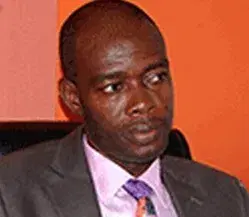Soon after the disparate states of the Italian peninsula were unified to create a single nation on March 17, 1861, Massimo Taparelli, the Marquess of Azeglio, popularly known as Massimo D’Azeglio, remarked: “We have made Italy, now we have to make Italians.” D’Azeglio, then Prime Minister of Sardinia, expressed concern over the fate of Italy, which had just become a nation-state. His sentiment resonates strongly in today’s Nigeria.
It is easier to establish a country than to unify its citizens around a common worldview that diffuses rather than intensifies ethnic and religious discord. In her book, “The Pinocchio Effect: On Making Italians, 1860-1920,” Suzanne Stewart-Steinberg explores how identity was constructed through newly formed attachments—both voluntary and otherwise—to the young nation of Italy. Using the character of Pinocchio as a metaphor, she argues that modern Italians were caught in a complex interplay of submission, both freely chosen and imposed by external forces.
This same complexity affects Nigerians today. Despite Nigeria’s amalgamation by Lord Lugard over 110 years ago, there remains a significant lack of national identity. The British made Nigeria, but Nigerians have struggled to forge a collective identity. When it suits them, leaders preach patriotism, often quoting former U.S. President John F. Kennedy’s call to service. However, the insincerity of Nigerian leaders undermines this rhetoric, as they fail to translate their words into action. This disconnect is a primary reason for the country’s persistent misery.
Nigerian leaders frequently engage in duplicity, manipulating the nation’s ethnic and historical divides for personal gain. Despite proclamations about Nigeria’s indivisibility, exemplified by former President Muhammadu Buhari’s statement that “Nigeria’s unity is settled and not negotiable,” the reality is more complex. After a lengthy medical leave in 2017, Buhari delivered a divisive speech that highlighted his narrow-minded leadership style, insisting on a non-existent national consensus on unity.
Buhari’s rhetoric further deepened divisions, particularly evident in his remarks regarding the crisis in the South-East. When questioned about resolving tensions in that region, his response was chilling. He referenced statements from the South-South, suggesting that any attempts to secede would lead to severe consequences. His comments illustrated an alarming disregard for the complexities of national unity and the diverse perspectives within the country.
As Nigeria continues to grapple with issues of identity and unity, the challenge remains: how to move from being a collection of nations to a cohesive nation-state that embraces its diversity while fostering a shared sense of belonging.

